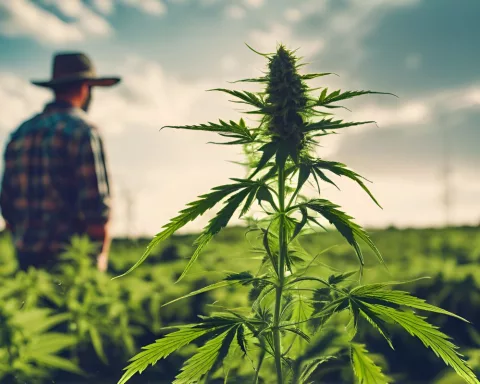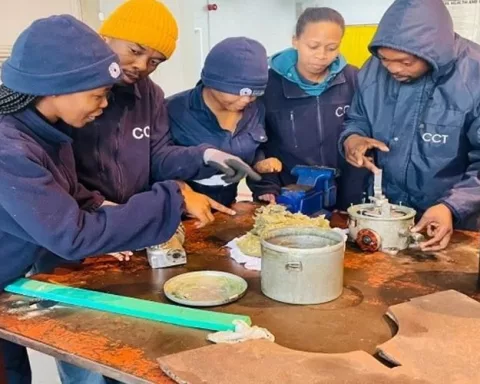Recently, South Africa’s Employment and Labor Minister, T.W. Nxesi, presented the Department’s Budget Vote for 2023/24. The focus of the speech was on job creation and preservation, strengthening social dialogue, health and safety, and promoting equity in the workplace. In this article, we will discuss the initiatives taken by the Department to alleviate unemployment and improve the workforce’s conditions.
Unemployment Insurance Fund’s (UIF) Labor Activation Program (LAP)
To alleviate unemployment, the UIF’s Labor Activation Program (LAP) will continue funding projects that maintain and create employment. Nxesi asserts that the UIF is currently reviewing its funding model to further increase support for job creation. The UIF’s partnership with the Industrial Development Corporation aims to create and retain jobs by supporting startups and existing businesses.
Temporary Employer Employee Relief Scheme (TERS)
The Temporary Employer Employee Relief Scheme (TERS), administered through the Council for Conciliation, Mediation, and Arbitration (CCMA), will continue supporting distressed companies seeking to retain their employees. The Department aims to recruit 240,000 people in the Employability Enhancement Program, designed to reintegrate the unemployed into the labor market by the end of the Medium Term Strategic Framework.
Productivity South Africa’s Business Turnaround and Recovery Program
Productivity South Africa’s Business Turnaround and Recovery program enhances the productive capacity and operational efficiency of enterprises to preserve jobs and minimize retrenchments. Over the five-year project period, it aims to support 37,250 enterprises, place 1,250 students/youth, and contribute a total of 113,000 jobs.
Youth Employment Projects and Online Job Matching Platform
The Department plans to introduce new youth employment projects nationally starting in June 2023. Positive results have emerged from Productivity SA Turnaround Strategies and UIF Labor Activation Programs, with 186 companies supported, resulting in nearly 16,000 retained jobs. The Department will also launch the upgraded Employment Services System of South Africa (ESSA), an online job matching platform, to facilitate work seekers’ access to employment opportunities.
Supported Employment Enterprises (SEE)
The Supported Employment Enterprises (SEE), a Department entity, will increase employment of people with disabilities at its factories from 940 to 1,250 during the current year. The Department will also provide subsidies to nine organizations, creating work opportunities for 1,041 workers with disabilities.
National Employment Policy (NEP)
Minister Nxesi highlights that the draft National Labor Migration Policy (NLMP) and the amended Employment Services, unveiled in February 2022, have been revised and are in the process of engagement at NEDLAC. The draft National Employment Policy (NEP) is currently being shared during consultations with various departments before its presentation to the Economic Cluster and Cabinet.
National Minimum Wage (NMW) Policy and Occupational Health and Safety (OHS) Amendment Bill
The National Minimum Wage (NMW) policy has already benefited around six million workers, and the Occupational Health and Safety (OHS) Amendment Bill is due for completion by September 2023 for engagement with NEDLAC. Nxesi hopes that proposed steep fines will curb non-compliance by some employers, reducing workplace accidents and diseases, thereby increasing productivity and economic growth.
Department’s Inspection and Enforcement Service Branch
The Inspection and Enforcement Service branch conducted over 100,000 Health and Safety inspections in the past year, targeting JSE-listed companies for compliance. In the last year, the Department conducted over 300,000 inspections to promote compliance, fair labor practices, decent work, and a safe workplace. The historical and systemic challenges within the Compensation Fund and UIF are being addressed to enhance access and service delivery.
UIF’s ‘Follow the Money’ Program
The UIF’s ‘Follow the Money’ program, aimed at recovering money defrauded from COVID-19 TERS funds, has made significant progress, recovering R61 million as of March 31, 2023, with 60 arrests and 12 individuals sentenced. UIF will also strengthen monitoring of its investments with the Public Investment Corporation (PIC) to ensure due diligence and fair returns.
For the 2023/24 financial year, the budget allocation to the Department is just over R4 billion. With the various initiatives in place, the Department of Employment and Labor is taking significant steps towards job creation and preservation, improving workplace safety, and promoting equity. These efforts are expected to positively impact South Africa’s workforce and contribute to the country’s economic growth.












